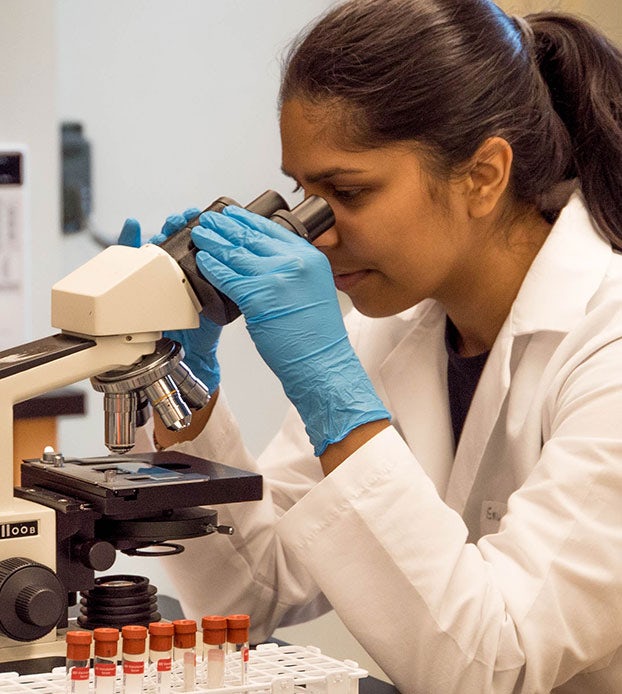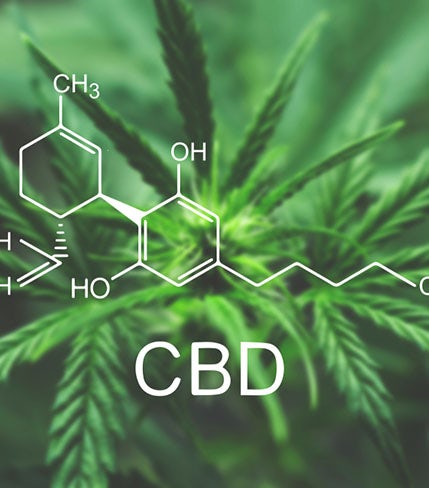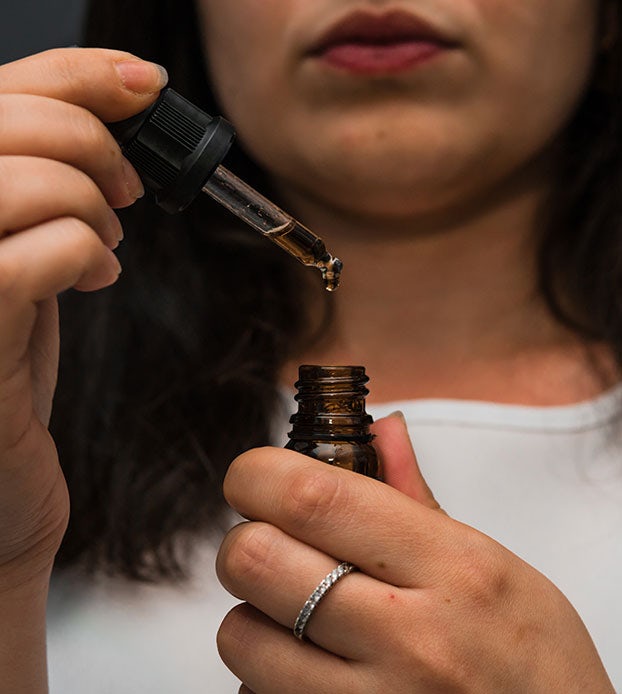Cannabidiol, or CBD, is a topic sweeping much of the globe. Patients and adult-use consumers alike are finding ways to incorporate CBD into their daily lives. This is due to the reports of it potentially aiding in an array of medical conditions ranging from minor pains to life-altering injuries and illnesses.
That said, a lack of studies has driven many consumers to rely on limited lab data. This lack of conclusive data has often been supplemented by growing anecdotal findings. Combined, many people are ready to find out if CBD will work for them.
Consider the following information to better understand CBD and how it may interact with your body.
How CBD interacts with other drugs
Drug interactions are always a point of concern, whether concerning humans or animals. CBD is no exception. Understanding how CBD interacts with other cannabinoids and medications is just as intriguing and important.
A 2017 study looking at the side effects of CBD compared it to other drugs commonly used to treat epilepsy and psychotic disorders and found that it has far milder side effects than those other medications, although the researchers suggested further clinical studies to look at some interactions.
Other critical discoveries in the study include how several drugs can interact with CBD. For example, drugs such as ketoconazole, itraconazol, ritonavir, and clarithromycin can inhibit the CYP3A enzyme, which breaks down CBD. This can lead to higher CBD doses being pharmaceutically active for a longer period. On the other hand, phenobarbital, rifampicin, carbamazepine, and phenytoin reduce the CBD absorption by inducing the same enzyme.
In short, if you’re using CBD and other medications, be sure to find out how they work together. If you don’t, you may end up needing additional CBD doses throughout the day.
Another 2017 study focused on CBD and common anti-epileptic drugs. It found that CBD-derived drug Epidiolex interacted within an acceptable therapeutic range on participants.
Keep in mind that each person’s experience with any substance can be different. The same applies to CBD. While a general understanding of drug interactions is available, nothing is entirely sure at this point. This is why each person has to understand how CBD and any other drugs they take interact with each other.
The possible side effects of CBD
Like drug interactions, a person can’t rely on their physicians or friends telling them about CBD side effects. With a good deal of misinformation going around, it falls on you, the consumer, to understand how CBD may interact with your body and its particular makeup.
All medications are likely to produce side effects. In some cases, side effects can negatively or dangerously impact individuals. Others can produce positive benefits. In the 2017 update to Bergamaschi’s analysis, mental health, addiction, the immune system, diabetes, and several other health concerns were analyzed. In most cases, CBD produced little to no side effects.
In some cases, side effects from traditional medications were not found when using CBD. Cancer was one such subject. The 2017 update wrote, “The typical side effects of traditional anticancer medication, emesis, and collateral toxicity were not described in these studies. Consequently, CBD could be an alternative to other MMP1 inhibitors such as marimastat and prinomastat, which have shown disappointing clinical results due to these drugs’ adverse musculoskeletal effects.”
While the 2017 update does provide a great deal of information, it would be wise to follow a researchers’ approach and cite various sources.
Previous studies support the updated findings as well. They include a 2005 research on CBD and pediatric epilepsy, which found that cannabidiol improves the condition without significant side effects. Meanwhile, a 2012 King’s College in London study noted that CBD did not cause any “significant side effects. Its conclusion noted, “In healthy volunteers, THC has marked acute behavioral and physiological effects, whereas CBD has proven to be safe and well-tolerated.”
This evidence can certainly help shape a person’s view on cannabis. Keep in mind, though, that each case is individual. The effects of CBD on various mental health conditions have shown a range of results from positive to ineffective. To learn more about whether CBD can help you, consult with a physician with experience in prescribing cannabis.
Physiological, neurological, and neuropsychiatric effects
Those looking to support their claims that CBD does help mental health conditions have years of research to consider.
The 2017 update noted that low dosage CBD it studied had beneficial physiological effects as well. They include the ability to “promote and maintain health, including antioxidative, anti-inflammatory, and neuroprotection effects.”
Some may even want to consider swapping vitamins for CBD after reading the findings. It stated that CBD is a more effective neuroprotective antioxidant than both vitamins C and E.
Those with anxiety struggles may want to research the findings around cannabis. Their condition may be one of the most researched topics in cannabis to date. This could provide patients with a wealth of evidence to support their beliefs about CBD treatment. A Dutch study mentioned in the 2017 update used high CBD in its work. It noted that CBD can “significantly lower levels of anxiety and dejection.”
Some mental health conditions have seen a long history of positive results using CBD. Studies have shown that CBD did not produce any adverse effects as far back as 1973. The study, a 21-day experiment, was repeated in 1980 with similar findings.
Concerning anxiety, the 2017 updated stated, “CBD showed a trend toward some protection against the reinstatement of contextual memory. No side/adverse effects were reported.” The same was noted in epilepsy studies. It found that “Moreover, neurological and physiological examinations were performed, which neither showed signs of CBD toxicity nor severe side effects. The study also illustrated that CBD was well tolerated.”
Additional examples include a 2019 open study on CBD, anxiety and sleep, which found that CBD may help people with anxiety disorders. This follows a 2018 study that reported CBD can be used to treat depression and anxiety without affecting the sleep cycle.
Be sure to consider ratios and pairings as well. Some mental health conditions have been known to benefit more from 1:1 THC:CBD ratios while others do best in different balances.
For example, a 2018 exam of the perceived adverse effects of cannabis found that high potency CBD/low potency THC lowered depression levels the most. Other studies have found similar results. Going back a few years, a 2011 analysis of post-traumatic stress disorder (PTSD) stated, “In most cases a significant improvement in quality of life and pain, with some positive changes in severity of post-traumatic stress disorder was observed” when using a THC/CBD combination.
While CBD is not a fix-all for mental health conditions, studies over the decades show its potential. Those seeking relief from certain mental health conditions and symptoms may want to consider including CBD in their treatment plans. In some cases, people have made CBD their only medication. In either case, consult with your mental health professional before making any decisions.
Possible effects on the immune system
Patients suffering from cancer and AIDS, along with many physicians treating them, have long supported using cannabis. They are considered some of the early pioneers in legalizing medical cannabis in America. While the medical findings were limited for some time, anecdotes and physical results did show the potential cannabis could have on a person living with these conditions.
Today, many others suffering from such conditions are reaching for cannabis to try to keep their immune systems intact and possibly improve them.
Several studies have explored how CBD affects the immune system. With many labeling the cannabinoid a fix-all, actually understanding its effect on the immune system is important. Until further lab results come in, people should not assume CBD can treat or cure any medical conditions with complete certainty.
The 2017 update discussed several medical conditions and their results after using CBD. It found potential in treating multiple sclerosis, arthritis, and diabetes. Its findings on Alzheimer’s disease found that rats had reduced neuroinflammation after receiving CBD treatment as well.
Those with life-threatening diseases have long believed cannabis can help with their conditions as well. Today, those living with what were once life-ending illnesses can consider both THC and CBD options as part of their daily treatment.
In recent years, AIDS and HIV patients have received further confirmation that cannabis improves their quality of life. In 2017, a study of marijuana use and black people living with HIV found that THC did not reduce immune functions. While it did not mention CBD, the positive findings serve as another recent boost for the cannabis plant as a medicine.
Furthermore, a 2018 study of heavy cannabis use among people with HIV found an association with an improved immune system. It should be noted that the study did state that clinical implications are unclear.
Food intake and glycemic effects
Cannabis has the potential to help with diets of several varieties. Those looking to eat more may find success with THC. People looking to do the opposite may find success with CBD or one of the plant’s other various cannabinoids.
The 2017 update mentions that CBD appears to not have any adverse effects on several essential functions of the body. Beyond the points mentioned above, this extends to other aspects. It states, “The same holds true for gastrointestinal transit, food intake, and absence of toxicity for nontransformed cells. Chronic use and high doses of up to 1500 mg per day have been repeatedly shown to be well tolerated by humans.”
Animal studies produced inconclusive effects on CBD and food intake as well. However, it did note beneficial effects on hyperglycemia thanks to CBD’s ability to act as an anti-inflammatory and antioxidant.
While THC might be known for inducing hunger, or “the munchies” as some have called it, studies appear to suggest the opposite for CBD. So, consider reaching for the CBD products to avoid the munchies.
A 2012 study using rats noted a steep decrease in food intake when compared to other cannabinoids. Its conclusions called for more studies to find out if CBD could help those wanting to lose weight. Meanwhile, a 2019 study supported such findings in the 2012 report and other studies. It found that CBD may reduce binge eating and could help lessen obesity concerns.
No studies conducted focused on CBD glycemic effects, according to the 2017 update. It noted one study on CBD and appetite that found that high CBD strains resulted in consumers feeling less hungry than they would with a THC-only cannabis strain.
Another cannabinoid, THCV, may also serve as a possible glycemic control option, according to a 2016 study of subjects with type 2 diabetes. It stated, “Compared with baseline (but not placebo), CBD decreased resistin and increased glucose-dependent insulinotropic peptide. None of the combination treatments had a significant impact on endpoints. CBD and THCV were well tolerated.”
Other medical conditions
CBD’s popularity has come, in large part, to the anecdotal evidence filling the void created by a shortage of studies over the years. A growing number of findings are filling in the gap. However, concrete evidence still lacks when it concerns several medical conditions commonly associated with CBD.
The same can be said for studies concerning ulcerative colitis, glaucoma and blood pressure to name a few. As such, people with conditions that aren’t as commonly linked to CBD should take extra precaution before considering consuming.
Not all conditions will be positively affected by CBD use, either. Crohn’s is one such example where some studies have found that CBD, while safe, did not improve the condition of a Crohn’s patient. Nonetheless, cannabis as a whole is approved in most places where medical cannabis is legal for the treatment of Crohn’s.
In the years to come, additional tests and lab studies should further confirm how CBD impacts each medical condition. For now, we are starting to understand some medical conditions better than others. However, none can claim to be completely understood at this time. While some inch closer to that point, it must be said that additional studies are required.
These conditions represent why each person has to understand that CBD isn’t going to fix every condition. While some may end up benefiting from CBD, not every medical condition will improve thanks to it. Thankfully, research is ongoing and we are learning more and more every day.
CBD patient and consumer safety tips
Thanks to global acceptance trending upward, the CBD market has gone from illicit market distribution to a regulated manufacturing process like any other medication in many markets. That said, improper actors are still present in the field across the world. This includes a continuing issue of mislabeled CBD products in the US.
While such concerns have declined as product labeling has improved, this shines a light on consumer and patient concerns. You must understand what products you are purchasing. Even if approved by the government, it wouldn’t hurt to verify the product’s safety by searching for its certificates of authenticity or other lab test results. Often, this can be performed by searching the company’s product and a term like “lab tests” into your search engine.
Dosing is another issue. While it is virtually impossible to overdose on CBD, excess consumption can lead to adverse side effects like the ones mentioned above. As such, you may want to follow the cannabis adage of “start low, go slow.” In this case, begin with a low dose of CBD, wait 30 minutes to an hour and see how you feel. From there, assess if more CBD is needed and repeat the same steps. This should always be coordinated in conjunction with your doctor.
In short, remember to:
- Only buy CBD from reliable vendors
- Check for Certificates of Authenticity or other lab verification
- If the company doesn’t provide such information easily, search online with a term such as “[Company’s Name]+[Product Name]+lab test”
- Once purchased, be sure to store your CBD in a dark, cool area away from the sun
Today’s CBD marketplace offers immense potential for people to address a variety of medical conditions. More information about proper usage, medical treatment, and other key concerns will come to light in the months and years to come.
Sign up for bi-weekly updates, packed full of cannabis education, recipes, and tips. Your inbox will love it.

 Shop
Shop Support
Support
















